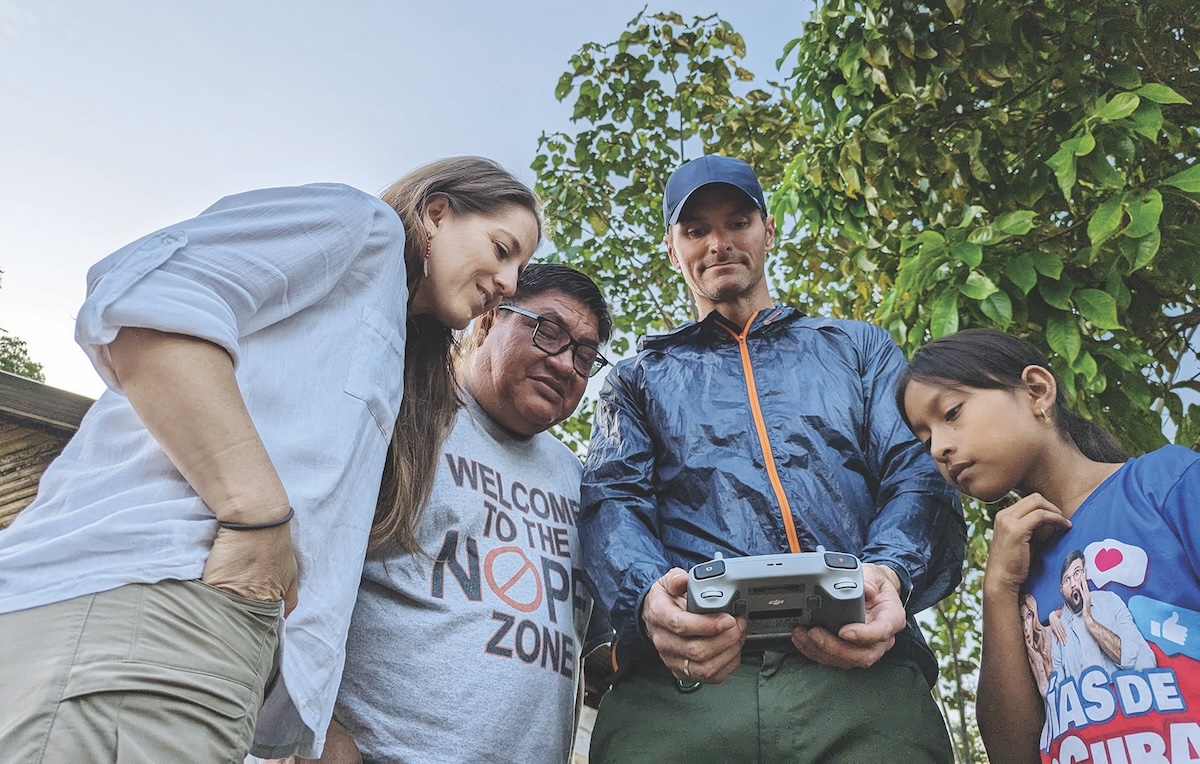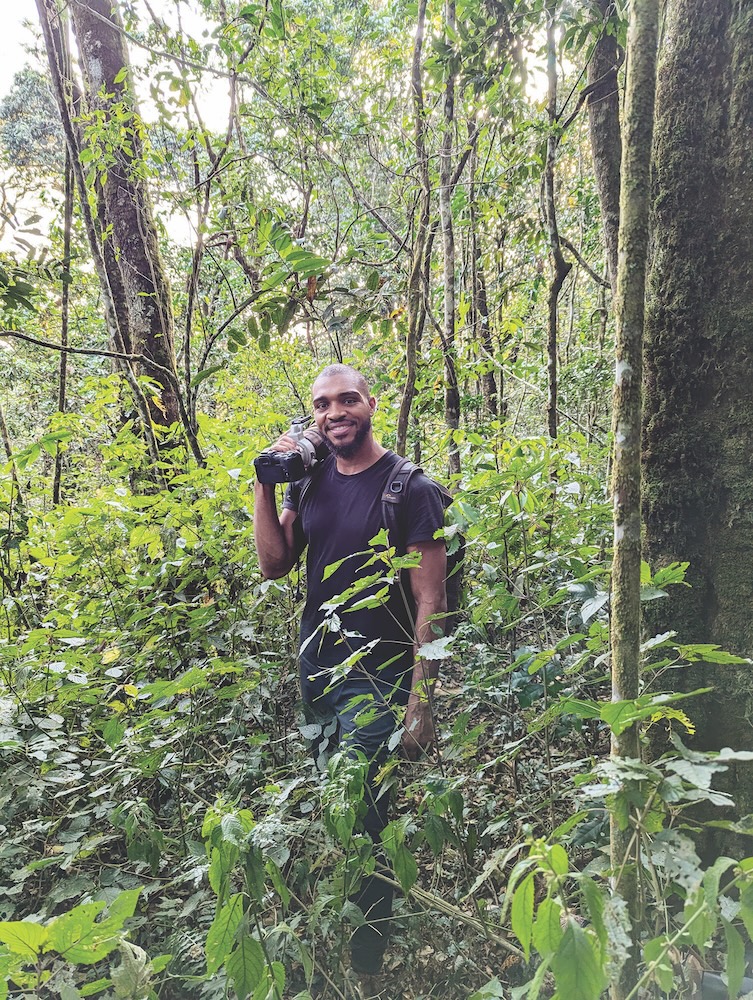How Journalism Fights on the Frontline for Nature Conservation

Rhett Ayers Butler describes himself as a lucky child. With collected airline miles from his father’s job and a travel agent for a mother, Butler had seen the wilds of Botswana, Ecuador, and Zimbabwe before he entered high school.

When he was 17, he crouched in a stream in the Malaysian rainforest of Sabah. Butler was wading through the water when he spotted a lone male orangutan, gliding through the trees above.
Butler savored his experiences in Malaysia, eager to return to the rainforest of Sabah. Several weeks after his trip, he learned that the rainforest was set to be cut down to feed a pulp plant. The animals lost their home.
But his time in Sabah remained vivid in his mind. Butler vowed to create a resource about these precious ecosystems so more people would be informed about their importance. He wanted his resource to be educational, open to everyone, and full of pictures that showed the beauty and wonder he had been lucky enough to see firsthand.
And so the nonprofit Mongabay was born.
Over the next decade, Butler grew the Mongabay website from a passion project to a leading news outlet for all issues at the intersection of people and nature. On a mission to inspire our communities to take action by providing in-depth coverage on topics most people would never have the chance to learn about, Mongabay has won many victories in the fields of conservation, education, and policy change.
In 2009, Mongabay fought on behalf of Madagascar, using thoughtful, research-focused journalism to uncover the injustice of rosewood deforestation. As a hotspot for biodiversity, 80% of the species on Madagascar are seen nowhere else in the world – including a flower that has been used to cure pediatric leukemia. Despite being a priority for conservationists, a 2009 political crisis meant that the natural resources of Madagascar became vulnerable to trafficking. Illegal loggers began to tear down the rosewood forests, selling the timber to international furniture merchants. Wildlife and local people suffered.
After Mongabay published an investigative report, the European shipping companies responsible for couriering the rosewood committed to stop carrying the timber. Subsequent pressure pushed Madagascar’s transitional government to place a ban on rosewood exports.
Today, Mongabay has multiplied their impact, growing roots in 30 countries, with more than 100 staff members and over 1,000 contributing journalists around the world.
“A lack of information is one of the major problems we have in actually addressing these issues,” Butler explains. “It is easy to forget that change starts with one person, and it is easier than ever before for someone with an idea to spread it rapidly around the world. And that is the role of good journalism – to give people that spark to work together.”
Mongabay
Donate now!mongabay.com
Director of Philanthropy: Dave Martin
(805) 402-3673
Mission
To provide news and information on tropical forests, wildlife, and environmental science.
Begin to Build a Relationship
We know you care about where your money goes and how it is used. Connect with this organization’s leadership in order to begin to build this important relationship. Your email will be sent directly to this organization’s director of development and/or Executive Director.
“Mongabay has a global network of journalists who provide local observations and insights to advance understanding of environmental impacts on the ground. Through their storytelling, Mongabay journalists make complex concepts come alive, elevate the voices of local communities, and touch diverse audiences around the world. The stories are regularly picked up by conventional news outlets, expanding their reach and impact, and moving decision makers to action. We are thrilled to partner with Mongabay in our movement for a healthy climate.
Support Journalism That Can Actually Save Lives
We drove the elephant bird to extinction, nearly eradicated a tree with the potential to treat HIV, and now we watch as the Sumatran Rhino fades into history.
Mongabay’s environmental journalism and education do more than inform – they change policy and, in doing so, save lives.
To bridge the gap between science and action, ecological data must be turned into actionable insights that drive changes in our policies, culture, and protection of the planet.
Two months ago, a groundbreaking satellite was launched, capable of assessing plant biodiversity from space. Yet despite these technological advances, much of the available ecological data remains unanalyzed and out of reach.
Mongabay is raising $10 million to launch the Mongabay Data Studio. With your generous support, Mongabay will train journalists to turn this critical data into actionable stories that can save ecosystems, species, and life-saving flora – before it’s too late.
Key Supporters
Acacia Conservation Fund
Arcus Foundation
Band Foundation
Children’s Investment
Fund Foundation
Climate and Land Use Alliance
(CLUA)
Ford Foundation
Full Circle Foundation
Gordon and Betty Moore
Foundation
Hans Wilsdorf Foundation
John F. Swift
Jon Ayers
Khanna Foundation
Laudes Foundation
MacArthur Foundation
Montpelier Foundation
Overbrook Foundation
Packard Foundation
Skoll Foundation
Tilia Fund
Walton Family Foundation
